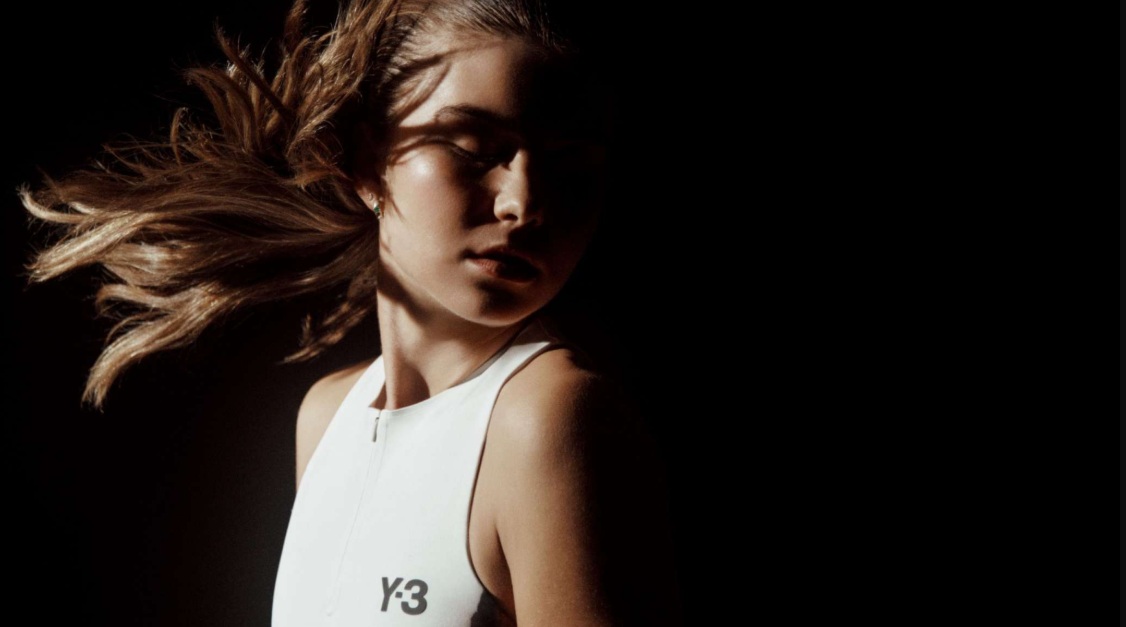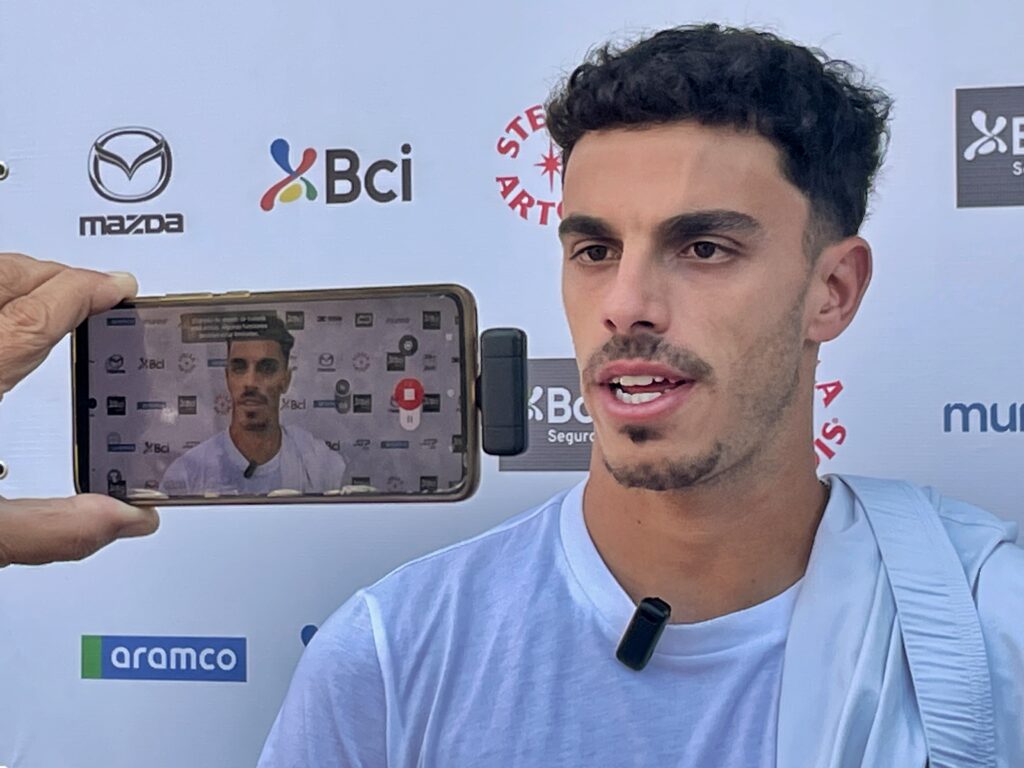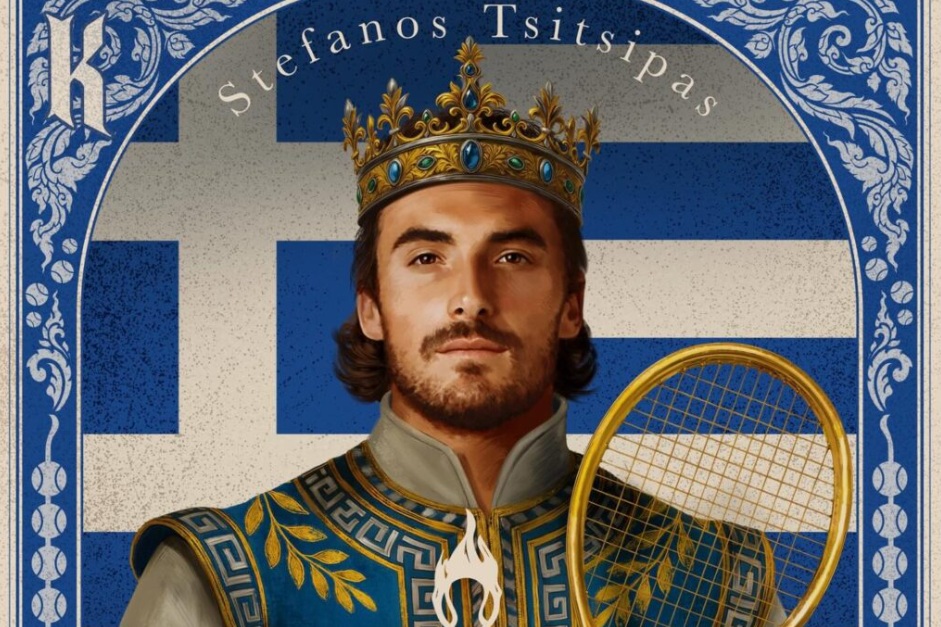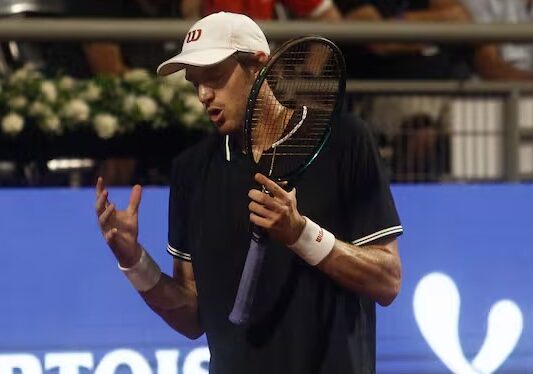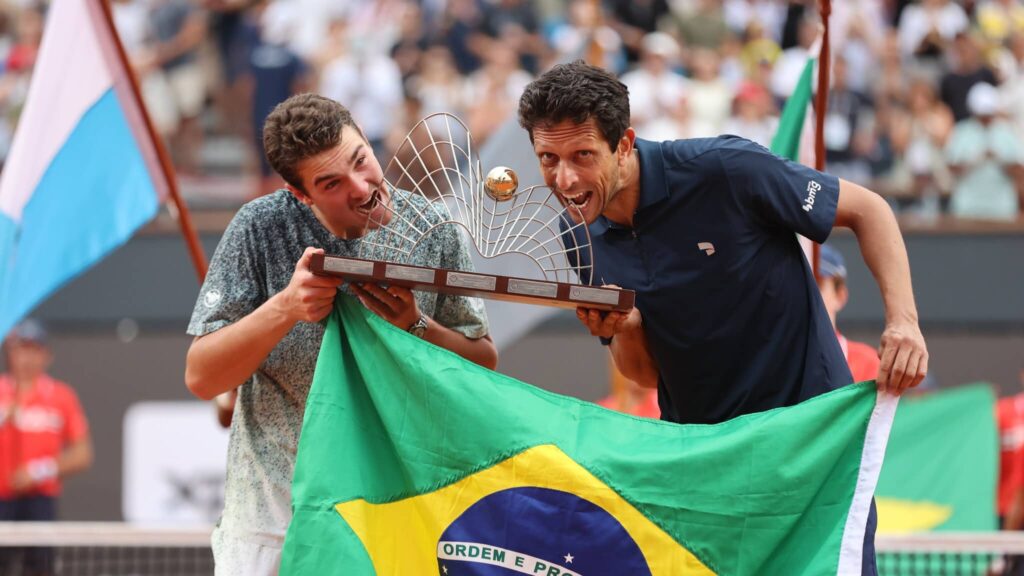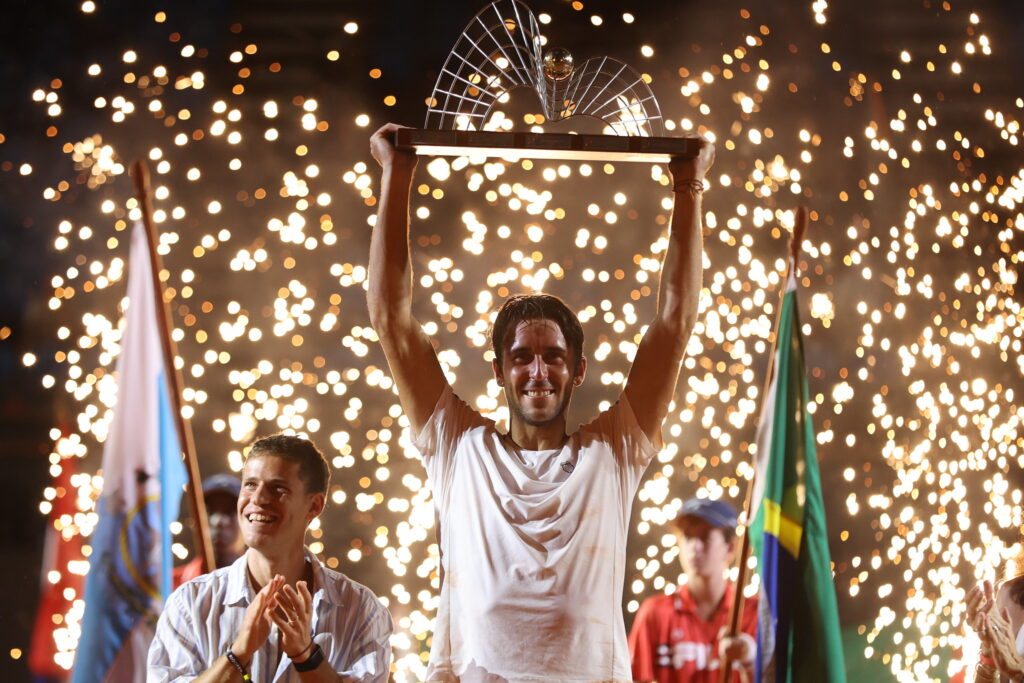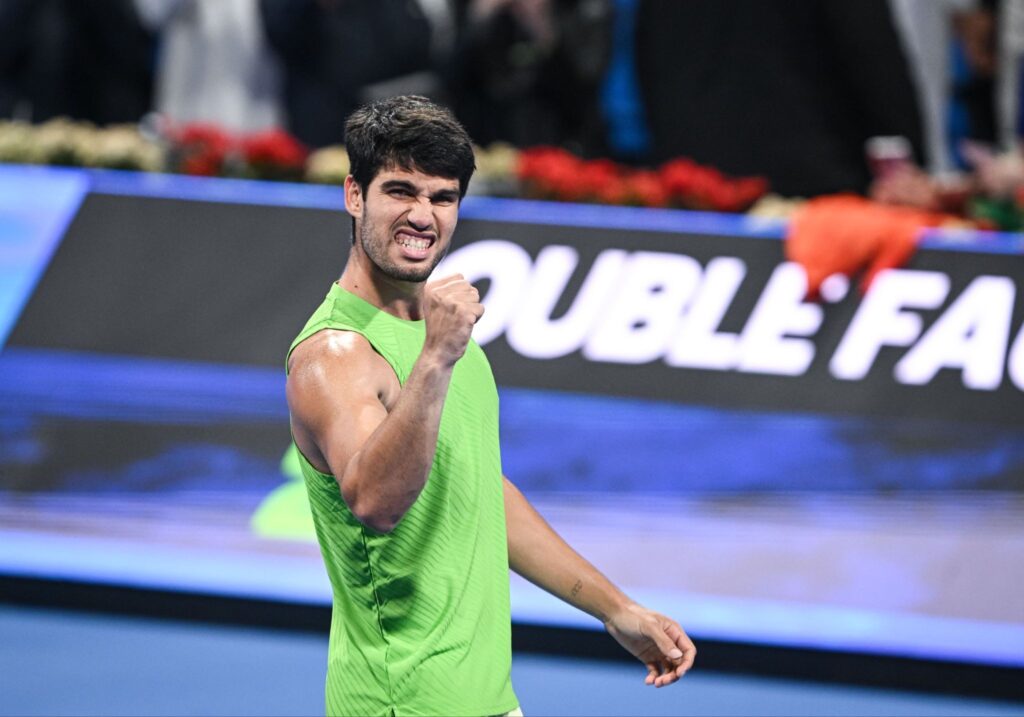She’s 17, incredibly talented, and has an intense desire to win. So intense that losses disrupt her sleep. Iva Jovic, one of the WTA’s brightest young stars, struggles to get a good night’s rest after defeat.
“Every time I lose, it’s tough for me and I definitely can’t sleep well that night,” the Serbian-American player told CLAY in an interview also published by RG Media.
And on many of those nights, she dreams of lifting the sport’s biggest trophies. “My dreams are sometimes weird, but most of them are about tennis. I dream about winning a tournament, about something amazing happening. Then I wake up and think, ‘Oh no, I really thought that happened.'”
The recent WTA 500 Guadalajara champion — the youngest title-winner of the season — has the blessing of Novak Djokovic.
Ranked No. 35 in the world, Jovic keeps a note on her phone with all the questions she wants to ask the most successful male tennis player of all time. She admits that when they meet again, she’ll be so nervous she’ll forget everything she wants to say.
“I wrote it down because when I get to that moment to talk to him, I know my mind will go blank,” she told CLAY during a conversation – in Serbian- that took place in New York during the 2025 US Open.
Interview with Iva Jovic
– This was your first full season as a pro. What do you enjoy the most?
– That I’ve met so many people. When I first came on Tour, everything felt different, like I was in another world. Now I have more friends and I feel like I belong. I also enjoy traveling – I’ve never traveled this much before, and now I’ve gained so many new experiences. Maybe in a few years I’ll get tired of it, but for now it’s wonderful. I get to see new places, and over the summer my sister traveled with me. I’m really enjoying it.
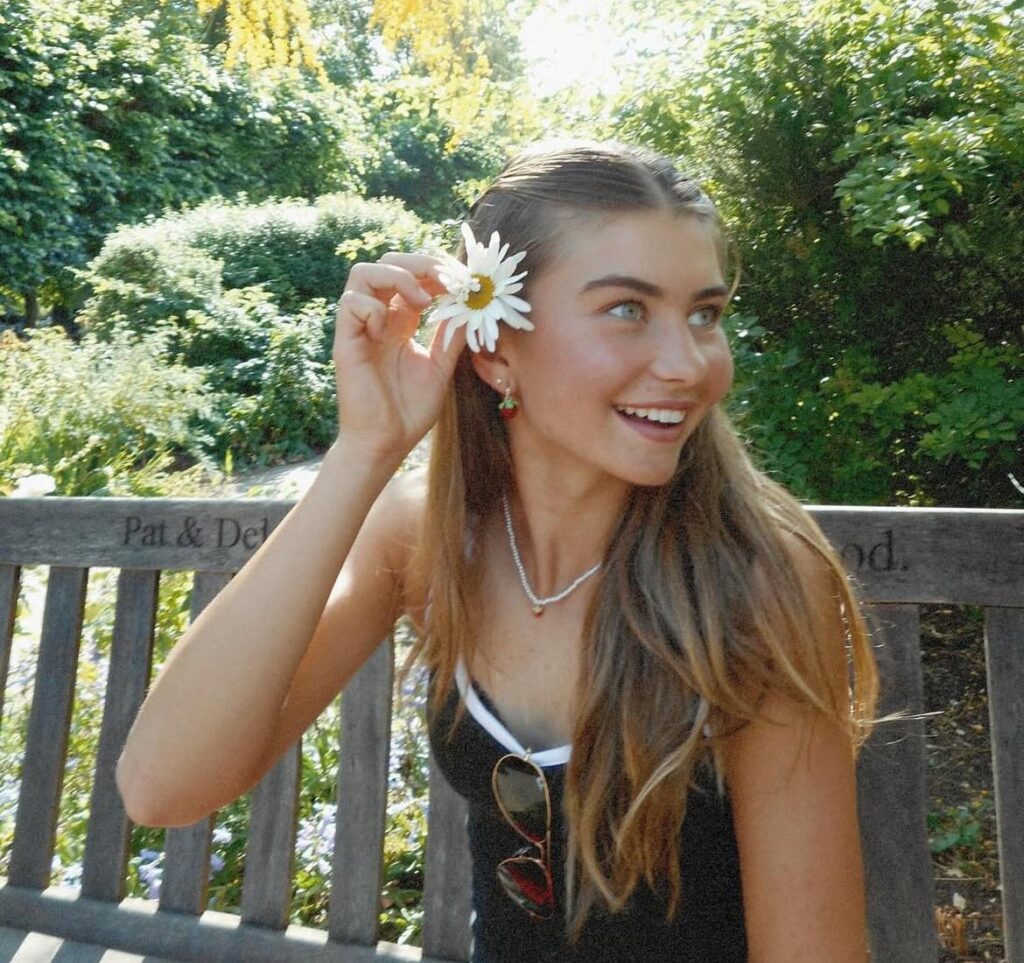
– Who helped you feel more comfortable on Tour?
– There are a few girls from juniors, especially Tereza (Valentova), who is a good friend of mine. Coco (Gauff) always says hi, the other American girls are super nice, and of course the Serbians – Olga (Danilovic), (Aleksandra) Krunic… Also, when you hit with someone, that naturally builds a relationship. There are lots of nice girls out here.
– Did anyone give you a piece of advice that really stuck – for example, what did you talk about with Coco Gauff?
– They do give advice, and it usually comes down to not getting too upset over one match or one result. They tell me there are so many tournaments, so much time, and that I just have to keep working to get better every day.
– How well do you manage to follow that advice – to stay patient and not feel pressure?
–It’s not easy. Not because of the pressure, but because I really love winning and I don’t like losing. Every time I lose, it’s tough for me and I definitely can’t sleep well that night. But there are so many matches ahead of me – wins and losses will both come. I know I can’t afford to ride that emotional rollercoaster all the time, otherwise I’ll drive myself crazy. I’m working on it and I’m already better, but I still have a lot of progress to make.
– What’s the hardest part of life on Tour so far?
– Sometimes it’s the constant changes – new rooms, new courts, new balls, new surfaces… It’s hectic, and you have to be ready to adapt all the time.
– How do you deal with that in your head?
– I have no idea (laughs)! I’m still trying to find balance, but I’m learning.
– Has it ever happened that you woke up and didn’t know what city you were in?
– I don’t even know what day of the week it is anymore! When you go to school, it’s easy – you just wait for the weekend. These days some tournaments start on a Saturday, some on a Monday, sometimes even on a Wednesday… I just look at the calendar, think it’s still August, and it turns out it’s September (laughs).
– We once asked Novak Djokovic at a press conference what he dreams about, and he said: “My wife will kill me, but mostly – tennis.” What do you dream about?
– My dreams are sometimes weird, but most of them are about tennis. I dream about winning a tournament, about something amazing happening. Then I wake up and think, “Oh no, I really thought that happened.” I dream about the big tournaments I want to win, then wake up a little sad (laughs). But maybe it’s a good omen.
Ver esta publicación en Instagram
Una publicación compartida por GDL Open AKRON presentado por Santander (@gdlopen)
– Your coach is still Tom Gutteridge. How does that relationship work?
– He still works for USTA and we have a great relationship. Tom helps me a lot, travels with me to almost every tournament, and I’m so happy about that. There is not too much talk – we do specific drills to improve certain parts of my game. That’s what I prefer. Sometimes when there’s too much talking, things become too mechanical. Shots should feel natural – the best players in the world make it look effortless. I need to improve step by step. There’s always something to work on, but gradually, with small changes through practice.
– What are you focusing on the most right now? Watching you, it seems like your backhand is more of a weapon than your forehand at the moment…
– I think they’re about the same. When I was younger, my forehand was shaky, but I’ve improved it a lot. I’ve been working a lot on my serve. Sometimes I serve really well, but there are matches where I don’t get a high enough percentage of first serves in…
– What’s the key to a good serve?
– I’ve improved my technique a lot, but I think the mentality is crucial. The serve is the only shot that depends completely on you, you have full control. I just need to keep practicing. For a long time, I didn’t make serve a priority because I didn’t really need it in juniors. At the pro level, if you don’t have a good serve, you’re in trouble. I have to change my mindset and focus more on it.
– Besides the serve, what’s the next step in your development?
– Movement and defense. In juniors it was easy – I could just attack, and no one had enough weapons to put me under pressure. Now it’s different, opponents hit bigger and it’s tougher, so I have to move better to win points from defensive positions. Also, slicing, mixing up the rhythm more in general. I’m not the tallest on Tour, I don’t have the heaviest shots, so it’s important for me to make opponents play worse than they can, not just try to outhit them.
– Back to your coach – what style of communication do you prefer? Do you like to talk right after a match, or wait until later?
– Usually right after a match I want to talk. If I lose, then it’s hell. After I lost (to Jasmine Paolini in the second round of the US Open), we went straight to practice. It was 10 p.m.… That’s what I usually do – back to the court, just practice. Sometimes I’m upset, say all kinds of things, complain, but when I win – everything’s perfect. Like I said – less talking, let’s just go on court and work. Whatever wasn’t good, let’s work on it.
– When we talked in Melbourne, you told me you had a selfie with Novak Djokovic but weren’t happy with how you looked in it. Have you fixed that since?
– I don’t need a selfie anymore! Now we’ve gotten to know each other, we’ve had a conversation, and now we even say hi to each other. He’s really powerful.
– What was that conversation like?
– It was informal, relaxed. He just told me: “Whenever you have any questions, I’m here for you.” He’s very kind, very nice. I was a little shocked, it’s still strange for me that I know him. He follows me now, and of course I’ve followed him my whole life. It’s cool that we have a relationship now – I’ll definitely use that and ask him for advice.
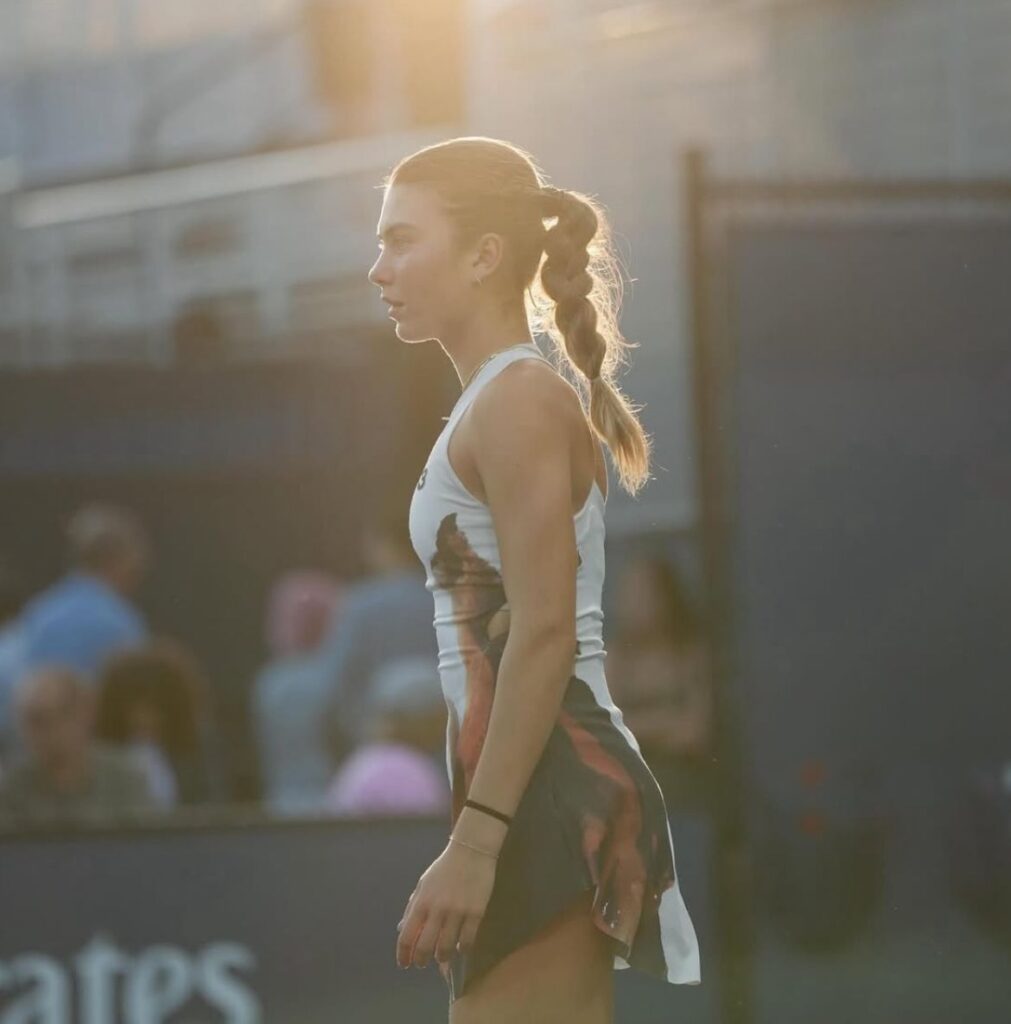
– What would be the first thing you’d ask him?
– The first thing… Wait, I wrote it down. (Takes out her phone)… I wrote it down because when I get to that moment to talk to him, I know my mind will go blank. Here! Exactly what we’ve been talking about now – how he reacts after a loss, what goes through his mind. Also, I want to ask about meditation, breathing techniques, and things like that. More mental stuff – we all know he’s a master at that. He gets frustrated too sometimes, but he’s found the winning formula, the golden middle. His answer will probably be that you have to work on it a lot (laughs). It’s never easy!
– You said you were in shock when you met him. Are there other players who made a similar impression on you?
– A bit with Sabalenka. There are people who just pass by, but others have this energy, like, “Oh, I know you’re here.” They have an aura. Sabalenka has that. I was like “wow” when I saw her. Same with Jannik (Sinner). All the top players have something special. It’s not that you’re scared, but it feels different when they’re around.
– You told me before that you like Belinda Bencic’s game style. Have you spoken with her?
– I haven’t, but she seems really nice. We’ll see, I wouldn’t want to bother her. If it happens – great. She’s still playing, so I hope I’ll get a chance to chat with her.
– So far you’ve had success on all surfaces. Which one do you like the most?
– I feel really comfortable on grass. The ball stays low, and that’s good for me because I have a low center of gravity and I like changing direction. On grass, if you go down the line once, it can be a winner. That’s helped me a lot. Returning is easier too because the ball doesn’t bounce high. Down-the-line shots are key. The faster it is, the better for me.
– How have you changed as a person since last year’s US Open, when the wider public first heard about you?
– It’s crazy! I don’t know… I’d like to say I’m more mature, and I think that’s true. I’ve learned so much about myself this past year – what helps me, how to train, how to think. Before I did things randomly, everything was new and I didn’t have routines… I was generally anxious, and now this life on Tour feels normal.
– What routines have you developed now?
– I warm up better, I work harder in the gym, and I think I’ve gotten much stronger. It’s hard to avoid injuries in your first year when you move up a level. Physically I’m better, and mentally I’m more prepared too – I can now make tactical adjustments during matches. Small things, but when you add them up, they make the difference. Details decide matches.
– There’s a lot of talk about the role of parents in professional sports, especially in an individual sport like tennis. How important is it that you have your mom and dad supporting you?
– Without them, I definitely wouldn’t be here, and I probably wouldn’t even be playing tennis. First of all, they’re incredible people and they gave everything so I could have a chance to play. They’re both pharmacists, they work their jobs, and they taught me that I have to work hard and put in effort. They never put any pressure on me – they let me try everything. I’m very grateful.
– What is that relationship like now?
– They try to come whenever they can. My dad coached me when I was younger, he knows some tennis, but he doesn’t interfere. He loves to watch, and my mom does too, but they’re mainly support – now I have coaches, I have everything I need.
– Have you set any goals for yourself?
– At the start of the year, the goal was to break into the top 100. I’ve already surpassed that, so now I have to set bigger goals.
If you enjoyed this interview with Iva Jovic, don’t miss many other interviews with the stars of the tour — available at this link to our website.
